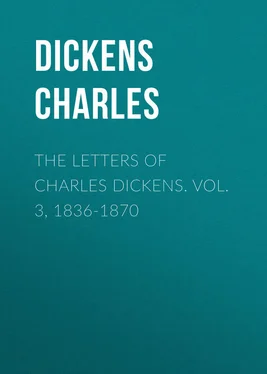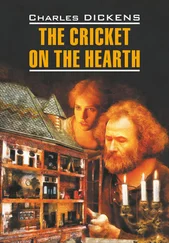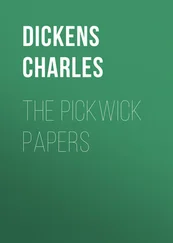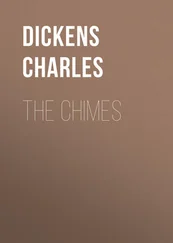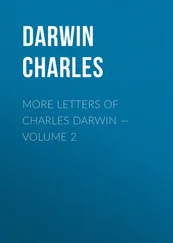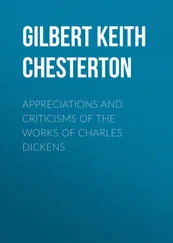Чарльз Диккенс - The Letters of Charles Dickens. Vol. 3, 1836-1870
Здесь есть возможность читать онлайн «Чарльз Диккенс - The Letters of Charles Dickens. Vol. 3, 1836-1870» — ознакомительный отрывок электронной книги совершенно бесплатно, а после прочтения отрывка купить полную версию. В некоторых случаях можно слушать аудио, скачать через торрент в формате fb2 и присутствует краткое содержание. Жанр: foreign_antique, foreign_prose, на английском языке. Описание произведения, (предисловие) а так же отзывы посетителей доступны на портале библиотеки ЛибКат.
- Название:The Letters of Charles Dickens. Vol. 3, 1836-1870
- Автор:
- Жанр:
- Год:неизвестен
- ISBN:нет данных
- Рейтинг книги:4 / 5. Голосов: 1
-
Избранное:Добавить в избранное
- Отзывы:
-
Ваша оценка:
- 80
- 1
- 2
- 3
- 4
- 5
The Letters of Charles Dickens. Vol. 3, 1836-1870: краткое содержание, описание и аннотация
Предлагаем к чтению аннотацию, описание, краткое содержание или предисловие (зависит от того, что написал сам автор книги «The Letters of Charles Dickens. Vol. 3, 1836-1870»). Если вы не нашли необходимую информацию о книге — напишите в комментариях, мы постараемся отыскать её.
The Letters of Charles Dickens. Vol. 3, 1836-1870 — читать онлайн ознакомительный отрывок
Ниже представлен текст книги, разбитый по страницам. Система сохранения места последней прочитанной страницы, позволяет с удобством читать онлайн бесплатно книгу «The Letters of Charles Dickens. Vol. 3, 1836-1870», без необходимости каждый раз заново искать на чём Вы остановились. Поставьте закладку, и сможете в любой момент перейти на страницу, на которой закончили чтение.
Интервал:
Закладка:
This same man asked me one day, soon after I came home, what Sir John Wilson was. This is a friend of mine, who took our house and servants, and everything as it stood, during our absence in America. I told him an officer. "A wot, sir?" "An officer." And then, for fear he should think I meant a police-officer, I added, "An officer in the army." "I beg your pardon, sir," he said, touching his hat, "but the club as I always drove him to wos the United Servants."
The real name of this club is the United Service, but I have no doubt he thought it was a high-life-below-stairs kind of resort, and that this gentleman was a retired butler or superannuated footman.
There's the knock, and the Great Western sails, or steams rather, to-morrow. Write soon again, dear Felton, and ever believe me…
Your affectionate friend.P.S. – All good angels prosper Dr. Howe! He, at least, will not like me the less, I hope, for what I shall say of Laura.
My dear Felton,
Many and many happy New Years to you and yours! As many happy children as may be quite convenient (no more!), and as many happy meetings between them and our children, and between you and us, as the kind fates in their utmost kindness shall favourably decree!
The American book (to begin with that) has been a most complete and thorough-going success. Four large editions have now been sold and paid for , and it has won golden opinions from all sorts of men, except our friend in F – , who is a miserable creature; a disappointed man in great poverty, to whom I have ever been most kind and considerate (I need scarcely say that); and another friend in B – , no less a person than an illustrious gentleman named – , who wrote a story called – . They have done no harm, and have fallen short of their mark, which, of course, was to annoy me. Now I am perfectly free from any diseased curiosity in such respects, and whenever I hear of a notice of this kind, I never read it; whereby I always conceive (don't you?) that I get the victory. With regard to your slave-owners, they may cry, till they are as black in the face as their own slaves, that Dickens lies. Dickens does not write for their satisfaction, and Dickens will not explain for their comfort. Dickens has the name and date of every newspaper in which every one of those advertisements appeared, as they know perfectly well; but Dickens does not choose to give them, and will not at any time between this and the day of judgment…
I have been hard at work on my new book, of which the first number has just appeared. The Paul Joneses who pursue happiness and profit at other men's cost will no doubt enable you to read it, almost as soon as you receive this. I hope you will like it. And I particularly commend, my dear Felton, one Mr. Pecksniff and his daughters to your tender regards. I have a kind of liking for them myself.
Blessed star of morning, such a trip as we had into Cornwall, just after Longfellow went away! The "we" means Forster, Maclise, Stanfield (the renowned marine painter), and the Inimitable Boz. We went down into Devonshire by the railroad, and there we hired an open carriage from an innkeeper, patriotic in all Pickwick matters, and went on with post-horses. Sometimes we travelled all night, sometimes all day, sometimes both. I kept the joint-stock purse, ordered all the dinners, paid all the turnpikes, conducted facetious conversations with the post-boys, and regulated the pace at which we travelled. Stanfield (an old sailor) consulted an enormous map on all disputed points of wayfaring; and referred, moreover, to a pocket-compass and other scientific instruments. The luggage was in Forster's department; and Maclise, having nothing particular to do, sang songs. Heavens! If you could have seen the necks of bottles – distracting in their immense varieties of shape – peering out of the carriage pockets! If you could have witnessed the deep devotion of the post-boys, the wild attachment of the hostlers, the maniac glee of the waiters! If you could have followed us into the earthy old churches we visited, and into the strange caverns on the gloomy sea-shore, and down into the depths of mines, and up to the tops of giddy heights where the unspeakably green water was roaring, I don't know how many hundred feet below! If you could have seen but one gleam of the bright fires by which we sat in the big rooms of ancient inns at night, until long after the small hours had come and gone, or smelt but one steam of the hot punch (not white, dear Felton, like that amazing compound I sent you a taste of, but a rich, genial, glowing brown) which came in every evening in a huge broad china bowl! I never laughed in my life as I did on this journey. It would have done you good to hear me. I was choking and gasping and bursting the buckle off the back of my stock, all the way. And Stanfield (who is very much of your figure and temperament, but fifteen years older) got into such apoplectic entanglements that we were often obliged to beat him on the back with portmanteaus before we could recover him. Seriously, I do believe there never was such a trip. And they made such sketches, those two men, in the most romantic of our halting-places, that you would have sworn we had the Spirit of Beauty with us, as well as the Spirit of Fun. But stop till you come to England – I say no more.
The actuary of the national debt couldn't calculate the number of children who are coming here on Twelfth Night, in honour of Charley's birthday, for which occasion I have provided a magic lantern and divers other tremendous engines of that nature. But the best of it is that Forster and I have purchased between us the entire stock-in-trade of a conjurer, the practice and display whereof is intrusted to me. And O my dear eyes, Felton, if you could see me conjuring the company's watches into impossible tea-caddies, and causing pieces of money to fly, and burning pocket-handkerchiefs without hurting 'em, and practising in my own room, without anybody to admire, you would never forget it as long as you live. In those tricks which require a confederate, I am assisted (by reason of his imperturbable good humour) by Stanfield, who always does his part exactly the wrong way, to the unspeakable delight of all beholders. We come out on a small scale, to-night, at Forster's, where we see the old year out and the new one in. Particulars shall be forwarded in my next.
I have quite made up my mind that F – really believes he does know you personally, and has all his life. He talks to me about you with such gravity that I am afraid to grin, and feel it necessary to look quite serious. Sometimes he tells me things about you, doesn't ask me, you know, so that I am occasionally perplexed beyond all telling, and begin to think it was he, and not I, who went to America. It's the queerest thing in the world.
The book I was to have given Longfellow for you is not worth sending by itself, being only a Barnaby. But I will look up some manuscript for you (I think I have that of the American Notes complete), and will try to make the parcel better worth its long conveyance. With regard to Maclise's pictures, you certainly are quite right in your impression of them; but he is "such a discursive devil" (as he says about himself) and flies off at such odd tangents, that I feel it difficult to convey to you any general notion of his purpose. I will try to do so when I write again. I want very much to know about – and that charming girl… Give me full particulars. Will you remember me cordially to Sumner, and say I thank him for his welcome letter? The like to Hillard, with many regards to himself and his wife, with whom I had one night a little conversation which I shall not readily forget. The like to Washington Allston, and all friends who care for me and have outlived my book… Always, my dear Felton,
Читать дальшеИнтервал:
Закладка:
Похожие книги на «The Letters of Charles Dickens. Vol. 3, 1836-1870»
Представляем Вашему вниманию похожие книги на «The Letters of Charles Dickens. Vol. 3, 1836-1870» списком для выбора. Мы отобрали схожую по названию и смыслу литературу в надежде предоставить читателям больше вариантов отыскать новые, интересные, ещё непрочитанные произведения.
Обсуждение, отзывы о книге «The Letters of Charles Dickens. Vol. 3, 1836-1870» и просто собственные мнения читателей. Оставьте ваши комментарии, напишите, что Вы думаете о произведении, его смысле или главных героях. Укажите что конкретно понравилось, а что нет, и почему Вы так считаете.
